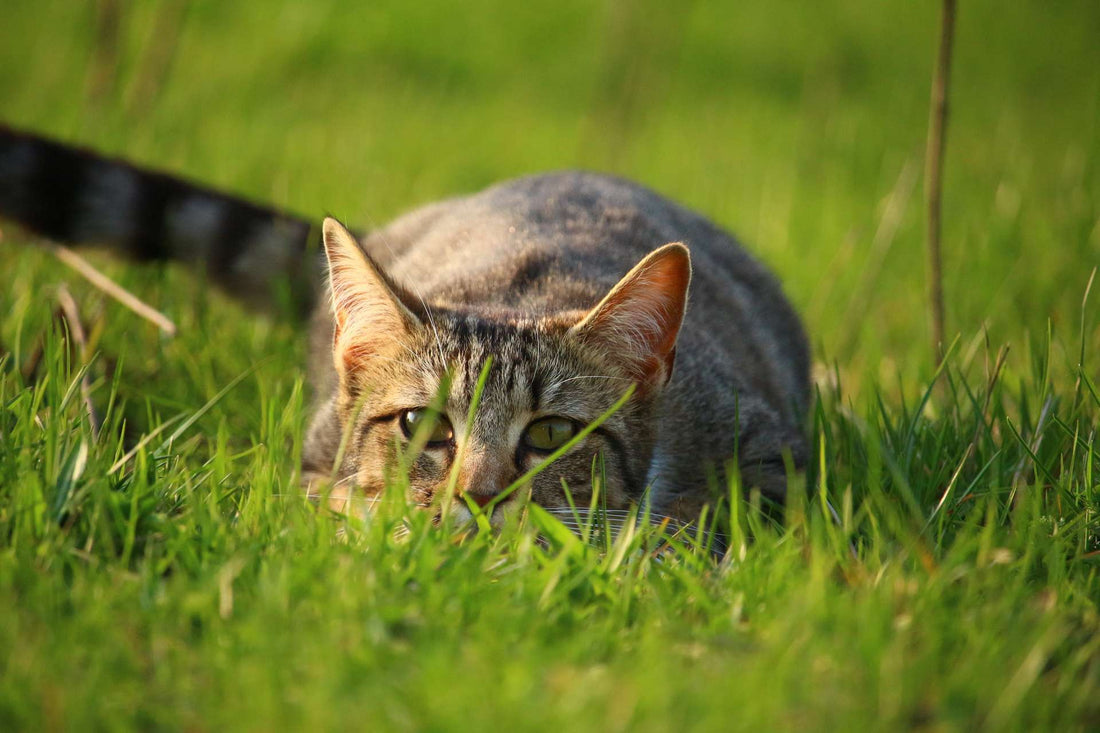Do cats actually have nine lives or justa really incredible immune system?
Your cat’s immune system is responsible for keeping them healthy and protecting against foreign invaders like bacteria, germs, and viruses. Knowing how it works can help you understand your pet’s health better and prevent diseases from attacking. Let’s take a look at how the feline immune systems works, types of issues it can be exposed to and some tips on how to boost your cat’s immunity.How the Feline Immune System Works
In simple terms, your cat’s immune system is like an army of highly-skilled defenders in charge of keeping your cat healthy. Cats have millions of immune cells throughout their blood system, lymph nodes, lungs, liver, intestines, spleen. These start out in the bone marrow and detach to travel and mature throughout the bloodstream and tissues. They constantly communicate with each other to know what’s happening in the body and create a memory of past offenses and how to attack them. “A variety of white blood cells exist… Some are designed to react primarily to bacteria and inflammation, others react more to parasites and foreign material, and others assist the lymphocytes in producing antibodies” to fight off infections. In other words, once immune cells detect antigens, which are found on the surface of bacteria, viruses and pollen, they begin to produce antibodies. After a relatively complicated process of cells binding and reacting, they attack the antigens to protect the body from the disease.
"So we all have immune cells and they hang out together - kind of like us."
Common Types of Feline Immune Diseases
Unfortunately, the immune system does not always function the way we want it to. Issues related to the immune system can be very dangerous for your pet. In rare cases, cats are born with a weak immune system, but more often, they acquire problems at an older age.
Immune-Mediated Diseases
A disease is immune-mediated when your cat’s immune system responds in a unregulated way, for example, mistakenly identifies harmless materials as foreign invaders. Some examples include:
Feline asthma: allergies make it hard to breathe, which can lead to respiratory distress.
Pemphigus: a group of skin diseases that occur when your cat’s antibodies attack the skin cells, creating blisters and pustules.
Immune-mediated polyarthritis: occurs when your cat’s immune system targets the cartilage and tissues surrounding the joints, leading to painful arthritis.

Both younger and older cats can be at a risk for immune system disfunction, but issues usually develop later on in a cat's life.
Immune Deficiency
When your cat’s immunity is compromised, the organs and white blood cells of the immune system start to lose their power. This can be the result of a congenital condition or acquired via another disease such as cancer. Here are some examples:
Feline Immunodeficiency Virus (FIV): attacks your cat’s immune system so that it stops working properly.
Feline Leukemia Virus (FeLV): impairs and weakens your cat’s immune system and leads to the development of certain kinds of cancers.
Feline Infectious Peritonitis: a fatal virus that becomes stronger and more progressive the weaker your cat’s immune system is.
Support Your Feline’s Immune System
Keeping your cat healthy is always a priority. The same way you might try to eat well, take vitamins and lead a healthy lifestyle to not get sick, boosting your cat’s immune system will help them fight off any diseases lurking around. Here are 3 ways you can do this.
1. Healthy and Complete Diet
Vicky Thayer, DVM who is on the board of directors of the American Association of Feline Practitioners, recommends a diet that is:
- High in protein — particularly those with amino acids, such as taurine, arginine, and carnitine. Proteins help the immune system repair, rebuild, and stay strong.
- Relatively low in carbohydrates
- Includes lots of fresh water for healthy hydration
For a great immune system boost in your cat’s diet, add half a scoop of EcoBalance to their diet. The product is all natural and contains immune enhancers and powerful antioxidants.

"Where is my lunch with EcoBalance, mama?"
2. Promote a Healthy Lifestyle
Felines in the wild get plenty of outdoor recreation and exercise — so don’t let your cat be a lazy house cat; instead, encourage play time and activity. Regular exercise and play allows the immune system to stay in tip-top shape, helps maintain a healthy body weight, keeps muscles toned, and their minds alert and active.
3. Reduce Stress
Just like in humans, stress can weaken your cat’s immunity and make them susceptible to germs and illness. Maintain a stress-free home by giving your cat plenty of alone time, a clean litter box, and space to explore. Daily massages and grooming will also help to create bonding and relaxing time together.

"I need me some chill time, OK?"
These easy tips will not only help boost your cat’s immune system, they will also make for a healthier, happier companion. Studies show that pets can improve our health and our immune systems, so we should reciprocate the favor! Keeping your cat’s immune system in optimal condition will help fight off viruses and parasites so your cat live a long healthy life by your side.
Further Reading :- “Do Adult Cats Have Strong Immune Systems to Fight Off Viruses?” The Nest
- “How to Raise a Healthy Kitten,” Tufts University Cummings School of Veterinary Medicine
- “Comparative Immune Systems in Animals,” Annual Review of Animal Biosciences

